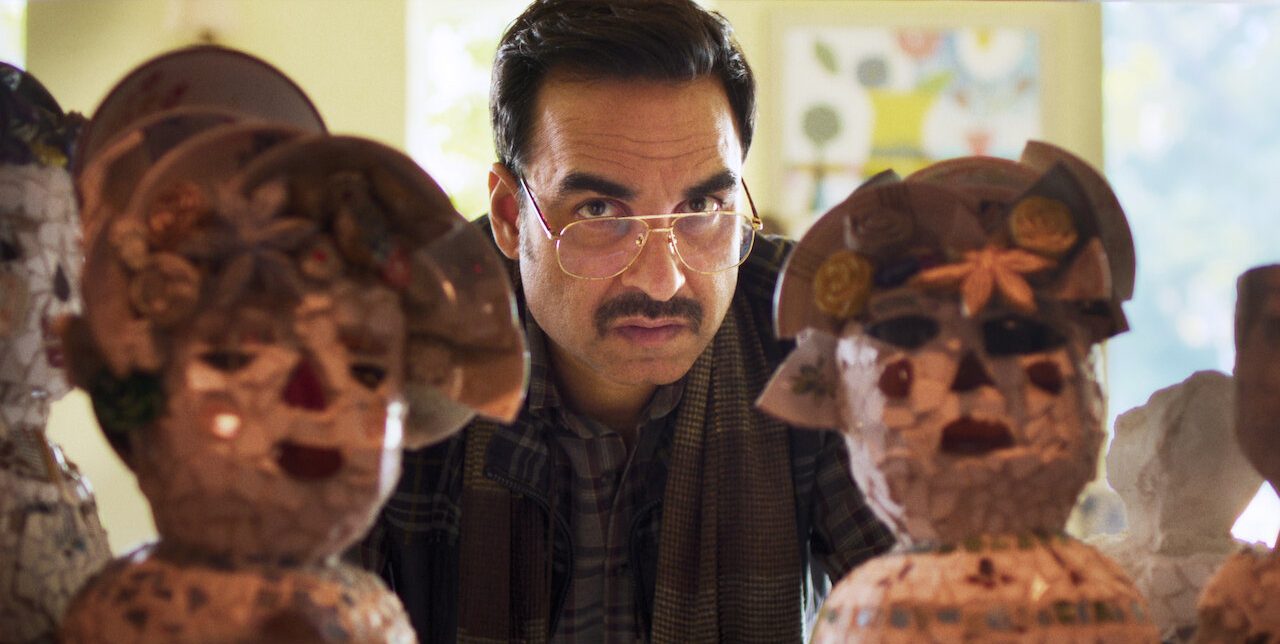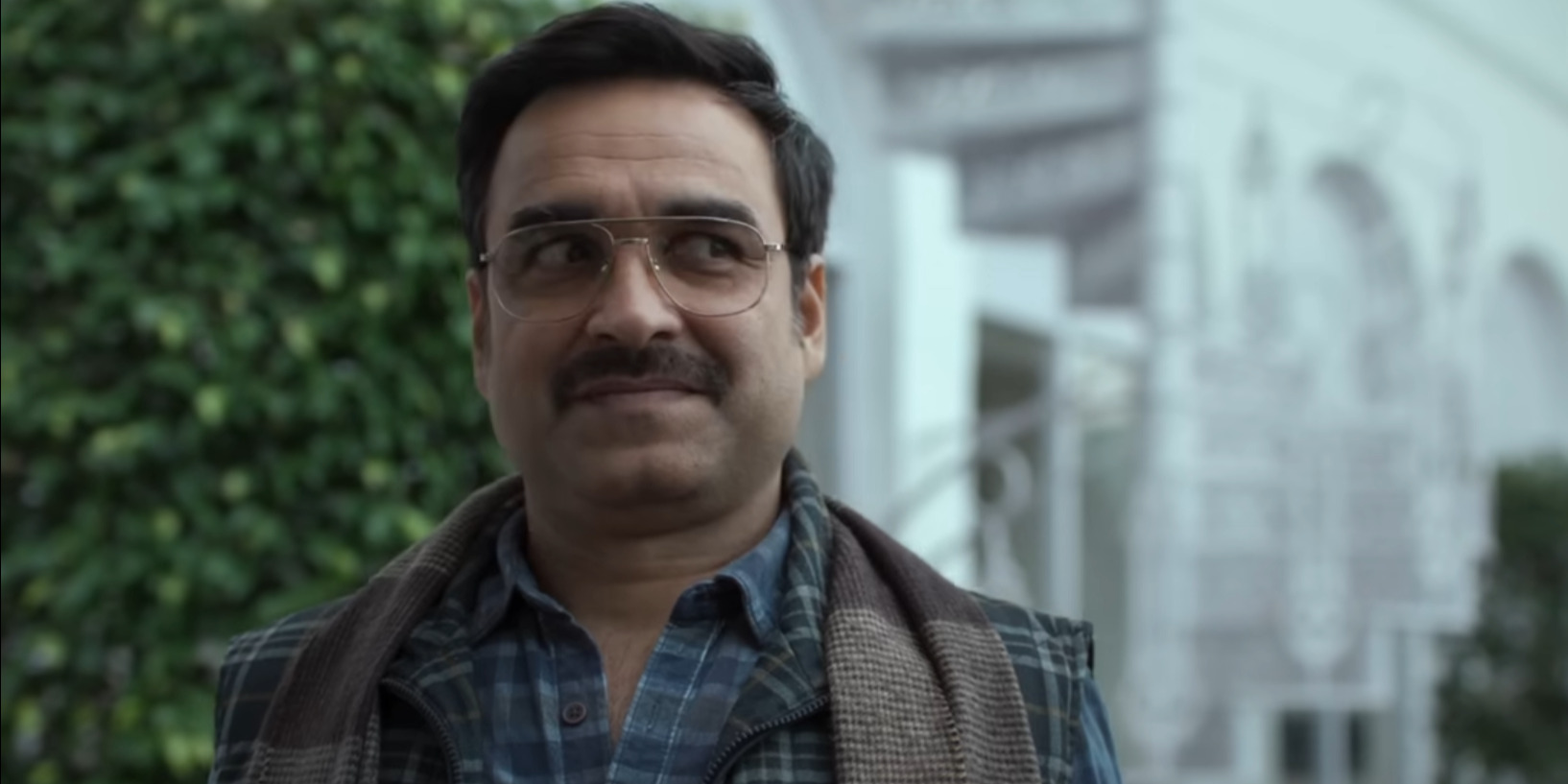With Homi Adajania at the helm, ‘Murder Mubarak’ revolves around a murder investigation taking place at a prestigious club involving affluent suspects and an unorthodox police officer. ACP Bhavani Singh is assigned to a murder case that takes place at the British-era Royal Delhi Club. He narrows down his search to seven eccentric suspects with seemingly hidden intentions and information about the case. Bhavani is surprised to see the club resume its functioning and the members indulge in celebration mere days after the incident.
The Hindi-language mystery thriller slowly unveils the personalities and connections between the suspects and the victim, creating a riveting and suspenseful narrative surrounding the elites and the outside investigator. As Bhavani navigates his way deeper into the club’s dark truths, some of us are left wondering if the Netflix film’s inspiration is based on a true story.
The Story of Murder Mubarak is Rooted in Agatha Christie’s Works
‘Murder Mubarak’ is based on a novel, ‘Club You To Death,’ written by Anuja Chauhan. The book itself is inspired by her experiences with clubs and Agatha Christie’s murder mystery novels. The film adaptation by screenwriters Gazal Dhaliwal and Suprotim Sengupta makes some changes to the book’s characters and removes political commentary but largely retains the work’s core charm. If you find yourself being completely thrown off by the film and its misdirections, you are not alone. In an interview about the making of the movie, director Homi Adajania admitted to being confused by the convoluted web of breadcrumbs, characters, and red herrings created by the narrative.

“It is extremely convoluted it’s not a simple murder mystery. It is very layered and the characters are extremely layered,” said Adajania. Anuja Chauhan grew up in an army family and, from an early age, enjoyed the privileges of the army clubs, appreciating the freedoms and the excitement that came with their refined social elements. In particular, she would go to the army club at the Delhi Cantonment in Dhaula Kuan. “I’ve always loved the club life. As a fauji kid it’s a big part of your growing up years; a safe place where you can wear shorts and strike up conversations with people you haven’t even been formally introduced to,” said the writer in an interview.
“I wanted to capture the dynamics between members and administrative staff, dependent members, non-members who watch jealously from the outside, and all the despots who guard their fiefdom so fiercely.” Anuja continued to visit clubs after her marriage, making fond memories of the Delhi Gymkhana Club as she lived across from it for several years. The author spent more time at this particular club than any other; its class-driven social life and interesting member dynamics stuck with her, inspiring the setting of her book. Anuja began writing the book in the basement of her house during the COVID-19 pandemic as an escape from her reality.
She pictured herself at the Delhi Gymkhana Club as she developed the novel’s narrative, weaving together characters and systems based on her experiences. Thus, the film’s source material draws from a rich source of knowledge of the elites and the exclusive environment, which adds to an authentic depiction of characters and interactions. Another element of the film that may have resonated with audiences is its commentary and sarcastic approach toward the class system and the elites at the club. Despite a reduction in political content from the book, the film still presents a clear divide between the grounded and methodical Bhavani Singh and the aloof, privileged suspects.
As the narrative follows Bhavani Singh’s interrogation, we are taken into the glamorous yet deeply flawed social circles, inevitably rooting against some of the snobbish characters. “They are living a very insulated life, insensitive to outside reality. Somewhere it becomes an us and them syndrome,” said director Homi Adajania in the aforementioned interview. ‘Murder Mubarak’ is not based on a true story but on a novel by Anuja Chauhan. The narrative derives its authentic charm from the novelist’s personal experience with high-society clubs as well as her fascination with the mysteries of Agatha Christie. The film may further resonate with viewers because of its relevant social depictions of class, privilege, and debauchery.
Read More: Best Murder Mystery Movies on HBO Max


You must be logged in to post a comment.